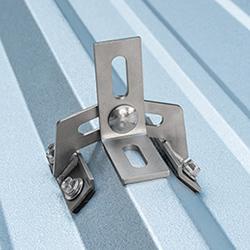Europe Unlikely to Follow US Lead in Imposing Duties on China PV Imports
The U.S. Department of Commerce (DOC) on May 17 announced a preliminary determination in its antidumping investigation of imports of crystalline silicon PV cells from China.
El Segundo, Calif., June 29, 2012—Following similar action from the U.S. government, the European Union may undertake an antidumping investigation of photovoltaic (PV) solar cells imported from China. However, compared to the United States, the EU inquiry is less likely to result in the imposition of countervailing duties, according to the most recent IHS iSuppli Photovoltaics Market Tracker report at information and analytics provider IHS (NYSE: IHS).
The U.S. Department of Commerce (DOC) on May 17 announced a preliminary determination in its antidumping investigation of imports of crystalline silicon PV cells from China. These cells are used in modules that form solar systems installed on houses, buildings or commercial PV-generation facilities.
Depending on the final results of the investigation, countervailing duties imposed by the U.S. government could result in the temporary removal of up to 45 percent of total PV cell shipments to North America.
"Based on an analysis of the U.S. government's previous rulings on antidumping investigations against China, there appears to be a high likelihood that the DOC's preliminary findings will be upheld and that duties on PV cells will be imposed," said Glenn Gu, senior analyst, PV, with IHS. "However, EU laws set a higher standard than comparable laws from the United States before duties can be enforced. This means that Europe will be less inclined to actually slap on duties, and thus will not experience the same disruption in PV cell supplies expected in North America."
Made in China; investigated in the United States
China during recent years has been the top target of U.S. trading investigations for all kinds of goods.
During the five-year period from 2007 through 2011, 122 antidumping cases were initiated by the U.S. DOC. A total of 72, or 59 percent of these cases, involved China.
Among all U.S. DOC cases involving all countries besides China since 2000, about half were denied or terminated, meaning that no countervailing duties or other penalties were imposed. But for cases concerning China, only 16 percent were denied or terminated, as presented in the figure attached, with the majority of the cases then proceeding forward.
Unlike in the U.S., however, China accounted for just 42 percent of all the cases filed by the EU during the period from 2007 through 2011, amounting to only 37 cases in total. The EU historically has been less inclined to impose countervailing duties on Chinese imports. And while the European body has followed the U.S. lead in initiating antidumping investigations in the past, it has actually imposed duties much more rarely.
Community interest in Europe vs. the United States
A major reason that the European Union is less inclined than the United States to impose countervailing duties is the stricter set of legal requirements that must be met. To prove dumping, it must be shown that the activity in question meets Europe's Community interest test.
Under EU law, duties can be imposed only if the dumped imports are confirmed to have caused—or will cause—injury to an industry within the Community. Conversely, it must be shown that the imposition of antidumping duties will not injure Community concerns. Finally, EU authorities must respect basic procedural requirements, including the right to due process of the aggrieved parties.
Such requirements as a whole present high hurdles that must be overcome before the EU can impose duties. As a result, it appears unlikely that Europe will actually slap countervailing duties on Chinese-made PV products that might result in supply disruptions for the region.
About IHS (www.ihs.com)
IHS (NYSE: IHS) is the leading source of information, insight and analytics in critical areas that shape today's business landscape. Businesses and governments in more than 165 countries around the globe rely on the comprehensive content, expert independent analysis and flexible delivery methods of IHS to make high-impact decisions and develop strategies with speed and confidence. IHS has been in business since 1959 and became a publicly traded company on the New York Stock Exchange in 2005. Headquartered in Englewood, Colorado, USA, IHS employs more than 6,000 people in more than 30 countries around the world.
Featured Product

